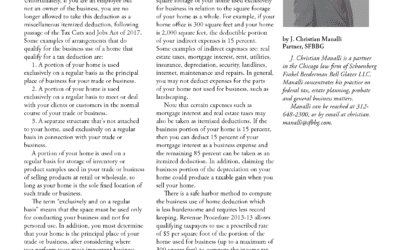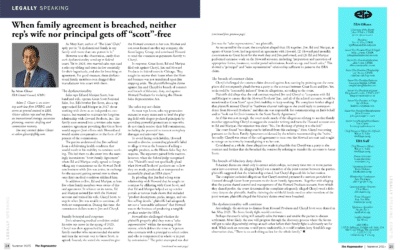It is routine for employers to perform background checks on potential new employees before extending a job offer. After all, applicants are not always accurate about their past, and a bad hire can substantially damage a business — both financially and through a loss of goodwill. Most savvy employers are aware that, as a condition to performing background checks, the federal Fair Credit Reporting Act imposes certain notice and consent requirements. But in some locations, even when employers fully comply with these requirements, they can still face legal liability. The Neiman Marcus department store recently received a costly lesson about this issue.
On September 27, 2016, the Illinois Appellate Court ruled that Catherine Ohle, an applicant for an entry-level sales associate position, was entitled to a trial on her class-action claim that Neiman Marcus violated the Illinois Employee Credit Privacy Act (“ECPA”) by refusing to hire her and others due to failed credit checks. The ECPA prohibits inquiries about an applicant or employee’s credit history, ordering a credit report, or not hiring an applicant or discriminating against an employee based on credit history. However, the ECPA contains two exemptions. Some employers — financial institutions, insurers, debt collectors and government agencies — are permitted to perform credit checks on applicants for any position. Credit checks are also legal when a satisfactory credit history is a bona fide occupational requirement for a position.
Under the ECPA, a good credit history can be a bona fide occupational requirement for positions requiring custody or unsupervised access to cash or property worth at least $2,500, having signatory power over assets of $100 or more per transaction, or providing access to personal, confidential or financial information or trade secrets. Neiman Marcus claimed that the sales associate position was exempt from ECPA because associates regularly sold dresses or other items valued at far more than $2,500, issued gift cards and processed returns worth more than $100, and received credit card applications containing personal and confidential information about customers such as social security numbers, dates of birth, addresses and income information.
The Appellate Court rejected Neiman Marcus’ assertions. It determined that although sales associates handled credit card applications containing personal information, they did not have “access” within the meaning of ECPA because the applications were immediately sent to secured locations or databases. The court ruled that a good credit history was a bona fide occupational requirement only for those employees who viewed credit information after an application was submitted — managers and loss prevention and credit office personnel.
Holding that Neiman Marcus’ other arguments would cause the exemption to swallow the rule, the Appellate Court also determined that a bona fide occupational requirement was not shown through sales of costly merchandise or the authority to issue refunds. These exemptions do not cover cashiers or other sales personnel, but rather managers or employees handling an employer’s finances, such as accountants or account receivable and payable employees.
The Ohle decision should serve as a red flag to Illinois employers. While background checks are usually a necessary step in the hiring process, employers should refrain from conducting credit checks except in rare circumstances. Unless an employer operates an exempted business or the position is one in which it is clear that the bona fide occupational qualification applies, performing credit checks on applicants in Illinois may expose the employer to significant potential liability.



